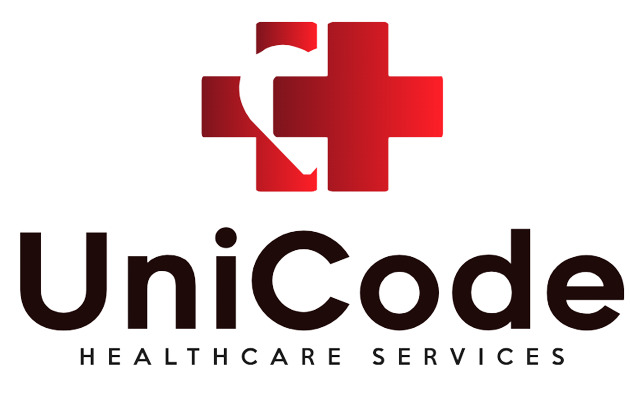AI Medical Coding Tools Explained: Pros, Cons, and Future Scope in India
AI Medical Coding Tools Explained: Pros, Cons, and Future Scope in India AI Medical Coding Tools Explained: Pros, Cons, and Future Scope in India | Unicode Healthcare Services Medical coding continues to be the backbone of the healthcare revenue cycle — converting clinical documentation into standardized codes used for billing, analytics, and patient record management.But as technology advances, AI-assisted medical coding tools are transforming how coders work, learn, and contribute to healthcare operations. While these innovations bring unmatched speed and accuracy, they also raise important questions about human expertise, data security, and long-term career implications. In this Blog, Unicode Healthcare Services explores the pros, cons, and future scope of AI-powered medical coding tools in India — and how coders can prepare for this evolving landscape. What Are AI-Assisted Medical Coding Tools? AI-assisted coding tools use Artificial Intelligence (AI) and Natural Language Processing (NLP) to analyze medical documentation and automatically suggest accurate ICD-10, CPT, or HCPCS codes based on the clinical content. These intelligent systems are often integrated with Electronic Health Records (EHRs) or function as standalone platforms that simplify the coding process. Popular AI-based coding tools include: 3M™ CodeFinder Optum360 EncoderPro Cerner Coding AI Modules Nuance CDE One Top Benefits of AI in Medical Coding 1. Increased Speed & Efficiency AI systems can process large volumes of data in seconds. What takes a human coder 10–15 minutes, AI can suggest instantly—significantly reducing turnaround time for hospitals and healthcare BPOs. 2. Enhanced Coding Accuracy When trained on verified datasets, AI drastically reduces human errors, ensuring more accurate claims and higher compliance—vital for reimbursement and audits. 3. Reduced Workload for Coders AI can automate repetitive tasks like outpatient or lab coding, allowing professionals to focus on complex inpatient cases that require human expertise. 4. Seamless Updates & Compliance AI tools are regularly updated with the latest ICD-10-CM and CPT revisions, helping coders stay compliant without constantly memorizing new guidelines. 5. Data-Driven Insights Many AI tools offer built-in analytics that identify denial trends, documentation gaps, and accuracy reports—supporting both coders and clinical documentation improvement (CDI) teams. Challenges & Limitations of AI in Medical Coding 1. Lack of Contextual Understanding AI may misinterpret nuanced or incomplete clinical notes. Only human coders can apply medical reasoning and clinical context effectively. 2. Dependence on Documentation Quality AI outputs are only as good as the data it receives. Poor physician documentation often leads to incorrect or unspecified code suggestions. 3. Risk of Over-Reliance Coders might accept AI recommendations without review, risking claim rejections or audit issues. Critical thinking must always complement AI output. 4. High Implementation Costs Advanced AI platforms involve licensing fees, integration costs, and training—making them challenging for smaller clinics or startups. 5. Data Security & Privacy Concerns Since AI systems handle sensitive patient data, ensuring HIPAA compliance and secure cloud infrastructure is crucial to prevent data breaches. The Future of AI and Human Coders: Collaboration, Not Replacement Despite concerns, AI is not replacing human coders—it’s empowering them.The future of healthcare documentation lies in AI-human collaboration: AI handles speed and automation Coders ensure accuracy, validation, and ethical compliance This synergy creates a smarter, more efficient workflow where coders evolve into analysts, auditors, and CDI experts. How Coders Can Prepare for the AI Era Learn AI Fundamentals – Understand how AI tools function and how to validate results. Stay Certified – Maintain CPC, CCS, or specialty credentials to remain competitive. Strengthen CDI Knowledge – Better documentation understanding = better code quality. Train with AI-Ready Institutes – Choose advanced institutes like Unicode Healthcare Services, where students gain exposure to real-time AI-integrated coding simulations. Why Choose Unicode Healthcare Services for Future-Ready Medical Coding Training At Unicode Healthcare Services, we prepare coders for the next generation of medical coding.Our AI-integrated training programs combine traditional CPC exam preparation with exposure to automated coding tools, real-time case studies, and compliance workflows. Key Highlights: Real-world AI medical coding simulations ICD-10-CM, CPT, and HCC coding updates Automated feedback systems 100% placement support in top healthcare companies Unicode ensures that every student graduates AI-ready, job-ready, and globally competitive. Conclusion: AI Is a Tool, Not a Threat AI-assisted coding tools are revolutionizing healthcare—but they’re not replacing human intelligence.The future belongs to coders who combine human judgment with AI efficiency. At Unicode Healthcare Services, we believe 2025 is not the era to fear automation—it’s the time to adapt, upskill, and lead in a hybrid world where technology and human expertise go hand in hand.
